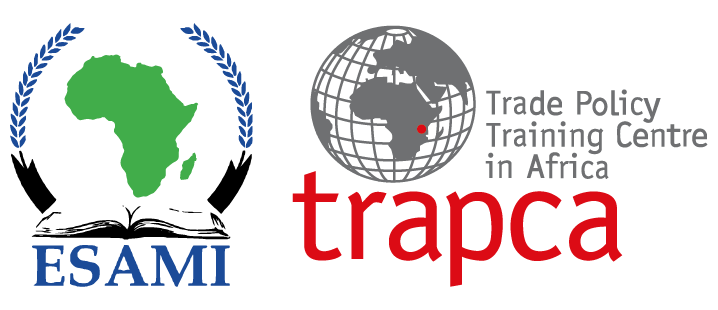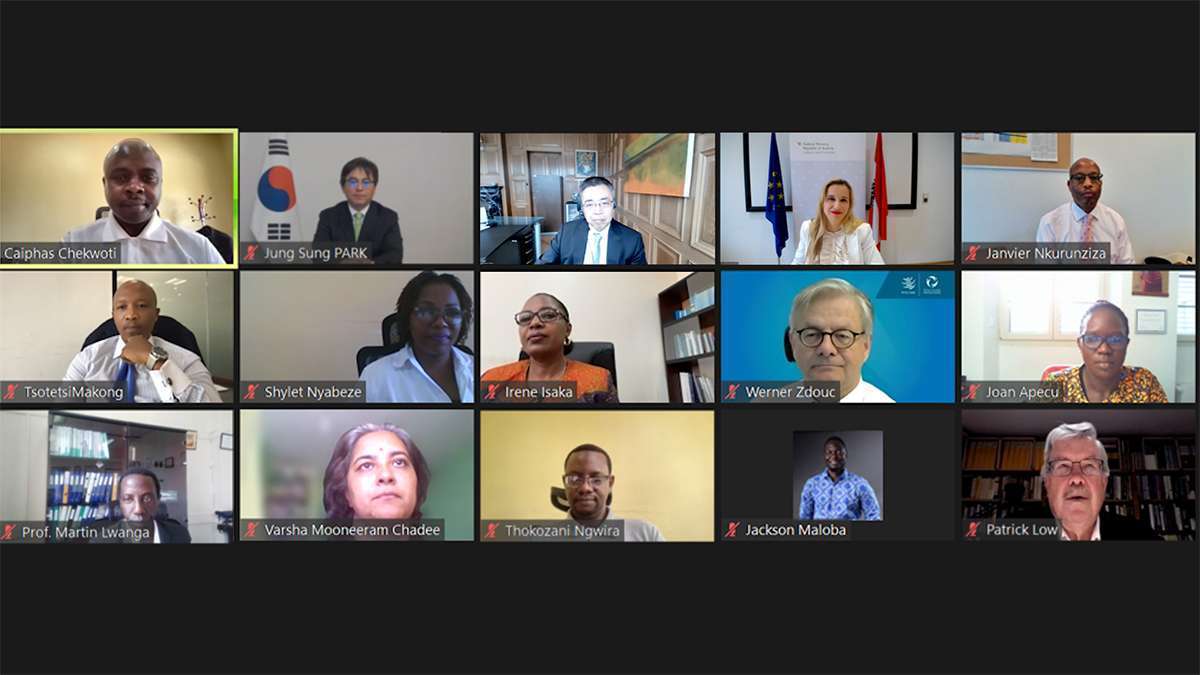The launch of trade capacity-building activities in Tanzania under the WTO Chairs Programme was marked at an event on 31 March at the Trade Policy Training Centre in Africa, an institution within the Eastern and Southern Africa Management Institute. Speaking at the event, Deputy Director-General Xiangchen Zhang said: “We are confident that the appointed team at the Trade Policy Training Centre will be able to deliver with great dedication and enthusiasm and make a meaningful impact in advancing the goals of the Chairs Programme.”
The Eastern and Southern Africa Management Institute (ESAMI) is a pan-African management development institute owned by ten member governments. The Chair in Tanzania will seek to help the East African Community overcome impediments to trade growth and development.
This year’s activities at the Training Centre will focus on issues of relevance to least-developed countries in Africa, including utilization of trade preference and their impact on the development of regional value chains; e-commerce; and trade remedies. The team is led by Professor Caiphas Chekwoti and Professor Tsotetsi Makong, who are experienced in training trade policymakers in both English- and French-speaking Africa.
Tanzania’s Deputy Minister for Investment, Industry and Trade, Mr Exaud Silaoneka Kigahe, noted that the Chairs Programme will facilitate access to research necessary to inform trade-related decision-making in Tanzania.
“As a continent, we appreciate the value of using evidence-based research in synthesising strategies and policies to mitigate the unique challenges that our region and countries face”, he said. “We hope that, through the research activities undertaken by this Chair, as a country as well as a region, we should be able to fully utilize WTO agreements on trade remedies, the flexibilities in the WTO Agreement on Trade-Related Aspects of Intellectual Property Rights and to effectively engage in e-commerce negotiations. We are counting on the Trade Policy Training Centre in Africa to analyse issues that are pertinent to harness the potential trade opportunities for the country and this calls for increased cooperation and dialogue among partners.”
The Director General of ESAMI, Professor Martin Lwanga, noted: “As an Institute, we intend to fully utilise the support of the WCP for the benefit of our host country, the United Republic of Tanzania, the East African Community (EAC), and African countries as a whole.”
Ms Irene Isaka, Director of Social Sectors at the EAC Secretariat, said that the collaboration with the Training Centre will help create a sustainable training and capacity-building programme(1). “We anticipate that the elevation of the Trade Policy Training Centre in Africa to WTO Chair status will enable it to rise even further to address not only the skill and information shortages in the EAC region but also the new and evolving challenges introduced by our dynamic world of pandemics, conflicts, emerging opportunities in digital technology and trade, regional and continental trade agreements and any changes at the multilateral level, amongst other things.”
The donors of the Chairs Programme, namely France, Austria, the Republic of Korea and Australia, were represented by the Director-General of Austria’s Ministry for Labour and Economic Affairs, Ms Cynthia Zimmermann, and Ambassador Jung Sung Park, Deputy Permanent Representative of the Republic of Korea.
Ms Zimmermann said the programme will help various WTO members develop tailor-made expertise, including in Sub-Saharan Africa. “The rigorous programmes of the Trade Policy Training Centre in Africa are designed to enable beneficiaries to participate actively in trade negotiations, craft trade policies and ensure their effective implementation,” she said. “This is an excellent example of how universities and research institutions can play a leading role in facilitating countries in the region to harness opportunities from international trade.”
Ambassador Park noted that Korea and Tanzania celebrated 13 years of diplomatic partnership last year. “It is hard not to notice the similarities between the goal of the Trade Policy Training Centre in Africa and that of the Chairs Programme, which seeks to build the capacity of policy makers on the ground who understand their country best. By “training the trainers” of government officials, institutional competence will remain even when the officials move on. And in today’s global economy, the advantage of having in-country expertise of trade rules and norms cannot be overstated.”
The launch event was followed by two policy discussions. The first focused on digital trade and e-commerce and their challenges and opportunities for regional integration.
Centred on rules of origin and commodities trade in the context of the AfCFTA, the second session discussed the importance of diversifying Africa’s exports and shifting to higher value-added products.
This article was originally published by WTO

